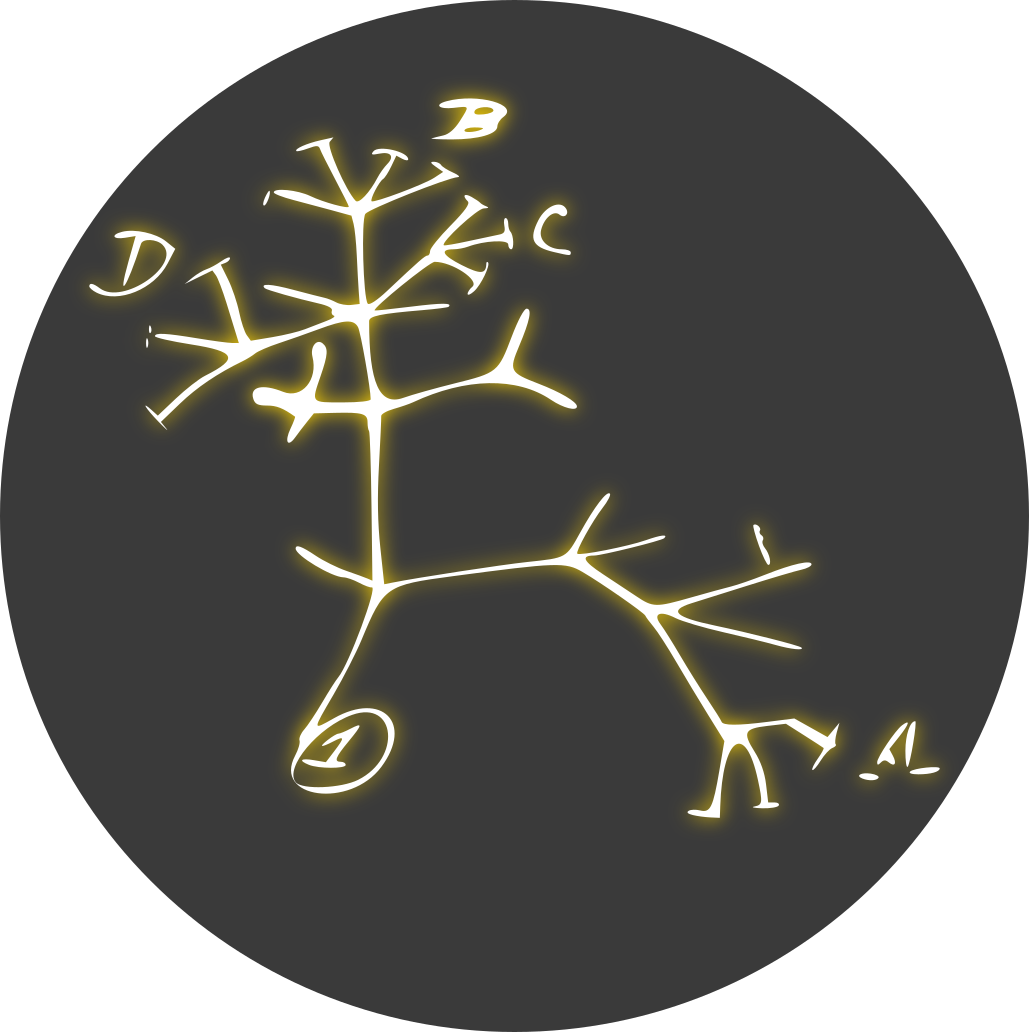9ft of snow?! I only experienced such deep snow in an urban setting while living in Connecticut for a year. I spent a few years in Oregon but the snow in the area never got so deep while I was there. When I was in the US I was not yet able to identify many fungi as I was mainly obsessed with animals (especially salamanders) back then, so unfortunately I did not really appreciate the diversity of fungi there. Although once in Oregon I did attempt to dye some socks using a wolf lichen (Letharia vulpina) and a pressure cooker. That did not end well.
Salamander
- 104 Posts
- 246 Comments
I see. So it is not necessarily that their mycelium are better at surviving the freezing temperatures, but rather that either they fruit quicker once conditions are acceptable or that their fruiting bodies are more cold tolerant. Thanks, it’s interesting.
Cool! I just read their wiki page and it says
A snowbank fungus, it is most common at higher elevations after snowmelt in the spring.
Snowbank fungus is a new term for me. Not sure yet what makes a fungus thrive through snow. Maybe they have anti-freeze proteins?
Does your area get a lot of snow?

 4·1 month ago
4·1 month agoWow, those spores are so bumpy, they are very interesting! Thanks for sharing :D

 8·1 month ago
8·1 month agoNo. I think they both lose more than they gain here. It doesn’t make sense as a strategy. Ego clash is a simple explanation.
Great find, congratulations!!

 9·1 month ago
9·1 month agoI bought a National Instrument’s data acquisition card (PCIe-6535B) not knowing that National Instruments is not very Linux-friendly and I was not able to get it working. At least it was a used card so I did not pay to much for it, but I learned my lesson not to assume compatibility.
Once I also used ‘rm -rvf *’ from my home directory while SSH’d into a supercomputer (I made a syntax error when trying to cd into the folder that I actually wanted to delete). I was able to get my data restored from a backup, but sending that e-mail was a bit embarrassing 😆
The thing that confuses me about Real Utopias is whether the author rejects revolution entirely, or wants cooperatives within a post-revolutionary Socialist system. The former has no real chance to actually damage Capitalism, while the latter is already used in countries like China as they gradually build into higher and higher stages of Socialism. Socialists already advocate for building up Dual Power, the Soviets for example were already in place before the October Revolution, but also understand that as this Dual Power grows the resistance from Capitalists grows as well, Revolution still becomes a necessity.
What I am getting so far is that he considers the revolutionary strategy to have a low probability of succeeding, and he argues that this is supported by historical evidence. The cooperatives are just one part of the strategy that he describes early on, once I am done with the book if I do think it is interesting enough I can try to summarize his thought.
In the textbook and in one of his online lectures he appears to start off aligned with Marx but diverges from Marxist theory. On Chapter 4 ("Thinking about alternatives to Capitalism, page 69) he describes his understanding of Marxist theory and in what ways he thinks differently. So, I suspect you will probably disagree with him strongly! Maybe I will too.
At this point I am not saying I have formed a strong opinion. The reason why Erik Olin Wright’s work brings me value is because his framework is aligned with my unpolished starting opinion of anti-capitalism through structural changes. His work helps me formalize my internal logic as I navigate through uncharted (for me) ideas about revolution as a mechanism for transformation.
I want to add that the purpose of my list is to equip the reader with solid foundational knowledge of Marxism-Leninism, so that the reader may better make up their own conclusions and further explore theory and historical texts (though I do include a section on history later).
Doing a good job 😀
I also think that, eventually, you’ll want to read Anti-Dühring. Engels counters the cooperative model from a Marxist perspective. It’s the much larger book the essay Socialism: Utopian and Scientific comes from, so if you’re down for a challenge you can read Anti-Dühring instead of Socialism: Utopian and Scientific.
Anti-Dühring’s table of contents looks very interesting, so I will get to it eventually, but it is a lot of material. These are some very resource-intensive opinions to build!
Ultimately, it boils down to 2 possibilities, neither of which are good for the cooperative model:
I follow this logic but I am at this time not ready to accept or reject the notion that these possibilities describe the range of possible outcomes from such a strategy. In the Real Utopias project the cooperative model is not seen as the end-point but rather as one mechanism to erode capitalism. The author did not think that the ruptural transformation pathway would have a good chance in creating a society with the properties he deems ‘desirable’. There are so many unconstrained variables and unknowns that the output of a fast and chaotic transformation process is undefined in many ways, and so there is no reason to expect that the properties of the society that emerges will fall exclusively within a narrow range of desirable ones. Slow but intentional structural change has (he argues) a better chance of incorporating desirable properties while rejecting undesirable ones.
You’ll have plenty of time to develop your own opinions, cooperatives are certainly better than traditional firms, but you’ll find Marxists typically don’t agree with “utopia building” and other cooperative forms of ownership, and you’ll best see why generally in section 2.
I’ll have plenty of time but also will need plenty of time, socialists like to write big books it seems.

 3·2 months ago
3·2 months agoNext time you will be better prepared. This opportunity seems to happen every 2,000 years or so, don’t worry, just a bit of patience and keep stone tablets on hand.

 3·2 months ago
3·2 months ago7?! Was it a single day hike? They are beautiful, great shots!

 3·2 months ago
3·2 months agoDid you hand it over two stone tablets?

 3·2 months ago
3·2 months agoSucceeding you mean
Blackshirts and Reds was a good entry point for me since I don’t have much historical background. It helped clarify terms like “fascism” that I’d seen used a lot but never truly understood. It also laid out some contrasts between fascist and communist dictatorships, which I found helpful early on.
One thing that really caught my attention was the bit on Kerala and the so-called “Kerala model.” That led me to Prabhat Patnaik’s article “The International Context and the Kerala Model” (available on scihub), which explained how IMF-backed liberalization can destabilize local economies by -for example - replacing self-sufficient agriculture with luxury imports.This was quite insighttful.
That said, the book does blur things together to build its narrative, and it doesn’t source every claim. I feel like this sometimes leads to misleading simplifications. For example, it says:
In Latvia, the communist activist Alfreds Rubies, who protested the inequities of free-market “reform,” has been kept in prison for years without benefit of trial
Reading that, you’d think Rubics was just an activist jailed for protesting neoliberalism. But when I looked him up, he was a politician that tried to crush opposition and backed a failed coup. That context matters, and the omission feels like nuance is missing. I found a few other cases like that - claims that technically check out but lack important context. Still, I learned a lot, and it made me want more source-heavy stuff. Something more like a history textbook that compares narratives directly and points at more direct sources (like UN resolutions, court documents, this type of things I like going through).
Another thing that I can add is that I am reading other things in addition to your recommendations. One memorable book that I am enjoying is ‘Envisioning Real Utopias’ by Erik Olin Wright. From what I have found online there is a mixed reaction to Olin’s ideas from socialists/communists. My understanding of his claims so far is that there are mechanisms of social transformation that may be accessed by exploiting vulnerabilities during the social reproduction process. I still need to read through a lot of the book but so far he has suggested that worker cooperatives (like Mondragon Corporation) and the creation of ‘cooperative banks’ (willing to lend money for transforming companies into worker-owned) create one of the viable mechanisms through which the capitalist system may be eroded. I have found some of the criticism of trying to solve capitalism with more capitalism, which is an easy criticism to make, but I do think Olin makes some good points. As of this evening I would say Olin’s description of the problem of social transformation, how he categorizes strategies in terms of desirability, viability, and achievability, and his data-driven approach to assessing policy strategies (such as looking at what has actually happened in universal basic income experiments), is what I am most in alignment with. But still lots to learn.
Already finished Parenti’s Blackshirts and Reds a few days ago and and watched Parenti’s speech. I am still going through the list, little by little. Great stuff, thanks !
but I will selfishly re-assert the importance of Dialectical Materialism
Ok, I will make sure I cover it then, I started this morning. Materialism is familiar to me and dialectics in the context of debate are also familiar, but ‘dialectical materialism’ is new. It has been about a decade since I put some dedicated effort in studying philosophy, and back then I mostly did morality, theology/metaphysics, epistemology, and philosophy of science. Economics and politics were not super interesting to me back then, but now they are, so it is a good time to revisit.
From a surface reading it makes sense that the resolution of conflicts that arise due to material conditions is one pathway to change. I am curious to understand how a framework is built from this concept and whether Marxist theory rigidly asserts this as the driver for change or if it is one important tool for building a perspective on class struggles but the framework accepts flexibility and complexity.
As for National Liberation, Frantz Fanon’s The Wretched of the Earth is the best Marxist explanation of it. National liberation against colonialism and Imperialism is seen as progressive, and the product of oppression, not the oppressors. Palestine, for example, is supported wholeheartedly against the Settler-Colonialism of Israel, including resisting genocide using force to do so. Oppression creates its own violent reaction, even if in a perfect world neither would exist.
I will leave ‘National liberation’ study for later as there is already enough on the plate. In the context of Palestine, the Palestinians need to do what they can do to survive. They have grown under an active genocidal campaign, they are direct recipients of unimaginable violence. I think it’s straightforward to frame this as a case of self-preservation. What is the alternative argument? That they should erase themselves?
What is arguably dangerous (I am not saying this happens in Marxist philosophy) is when an ideology recognizes, as an example, the ‘Imperial Core’ as the ultimately responsible entity of oppression and places everyone who benefits in some way, perhaps simply by being born in Europe or US, as part of the enemy. Someone can justify bombing civilians in a Western country using a robust and coherent ideological framework that is further justified by the violent injustices that they have experienced. When I think of an ideological framework that discusses violence, I’m interested in what mechanisms are in place to keep violence in check.
Make sense?
Yes, it does, very much so. Thanks a lot!
It is good to hear. For what it’s worth, I just went through a bit of an exercise for Cuba trying to look for examples of the types of violence that they committed and also looked into some of the other groups that I associate with the concept of a “violent revolution” (ETA in Spain, IRA in Ireland, different groups in Yugoslavia). What I found is:
-
The groups that I associate with terrorism tactics are nationalistic, not fighting for socialism (at least not as a main goal).
-
The Cuban revolutionaries used guerrilla tactics that, from what I can find, did not use terrorism as a tool. Their enemies, including CIA-backed groups, did.
So, that’s points in favor to Cuba.
When people say “kill the landlords” online, they are usually expressing frustration at the parasitic nature of landlordism, they are not announcing that they intend to kill grandma.
Good to know! Before the 2016 US election I would rarely choose the literal interpretation when reading statements like this online. When Trump was elected and I realized that people online were not actually being sarcastic and making jokes, I began to take online statements more seriously and literally. I still think there is a high probability that some people who write about violence online mean it literally. That doesn’t necessarily reflect on Marxist-Leninists though, many ideologies/religions can be pushed to extremism, and it is not entirely fair to ask everyone not to use figurative language online.
I am half way through Wage Labor and Capital now. It is very interesting, I think that I will like Marx’s Das Kaptial because I do like dense/analytical. I already have several questions but I will first read more and then see if I can get some help in the communities you mentioned.
-
Thanks! I had the chance to read a bit.
So far… Engels Principles of Communism says some sensible things to do if the government is trusted (for example, the concept of abolishing private property, inheritance taxes, etc…), but it is also makes some point that I find concerning. Specifically, the combination of the answers provided to “Q16: Will it be possible to bring about the abolition of private property by peaceful means?” and “Q24: How do communists differ from socialists?” concern me because Q16 suggests violence as a method and Q24 significantly broadens the scope of who is an enemy of the revolution, while still keeping it ambiguous. A call for violent revolution + ambiguity of who is the enemy is a dangerous recipe because it leaves a lot of room for “interpretation” and “nuance” that will probably lead to disagreement between violent factions.
I think of this mixture of call for violence + an ambiguous enemy in the context of what I see sometimes being posted to social media, including Lemmy. I have seen calls for violence against “owners” that often extends to small business owners and landlords, usually without distinguishing between a commercial entity as a ‘landlord’ and a grandma renting out a room. Sometimes I think this is just a figure of speech but sometimes I doubt and consider that these might be actual calls to action. So, then, when I see such a broad brush being used to paint the ‘enemy’ I get the impression that pretty much anyone benefiting in some way from these systems is an enemy if they do not immediately understand and fully embrace the revolution. A revolution, then, seems to ask the revolutionary to be violent against friends and families if living in a developed country. I find it difficult to imagine that a majority within a population would want to go through this process if they fully understand the implication. When a Engles writes about “the majority of the people”, does this count every individual in the population, or only those who are friendly to the revolution?
As I continue I am curios of whether I will find find some robust method to distinguish between the ‘proletariat’ and the ‘petty-bourgeois’, and to find out whether I will keep my head during the revolution. It would be nice to find some ideas on how to achieve the goals without violence. I have also seen that many more modern philosophies are built on top of Marxism-Leninism (like Degrowth), so in any case I am certain I will get a lot of value out of this topic.
I also found that you are running a book club on Das Kapital, I will try to catch up.
Do you know of a community where I can ask questions about this topic?
Again, thank you very much for taking the time to respond in such depth. As I read what you write I think of more questions, but I think it is unfair that I continue asking when you have given me already a lot of explanation and study material. My questions will most likely be addressed in the material.
On my way home now I was thinking about what would be a good way to approach this study. At first I thought of picking Venezuela because it is a bit close but not too close to me. But from what you mention it seems like it might be a difficult one to start with. I have decided I will focus on Cuba first (well, once I am done with the pre-req theoretical background). I even made a small plan to follow, I’ll try to visit Havana within the next few years.














Would love to… When I was in Oregon this lichen was super abundant. At the moment I am living in Amsterdam (Netherlands), and I see mostly Xanthoria, Evernia, Rhizocarpon, and a few other lichen species that grow on city trees, but they are very small and spotty, nothing compared to the wolf lichen in Oregon. I do miss the Oregon forests with the old growth sequoia redwood trees and all that lichen.